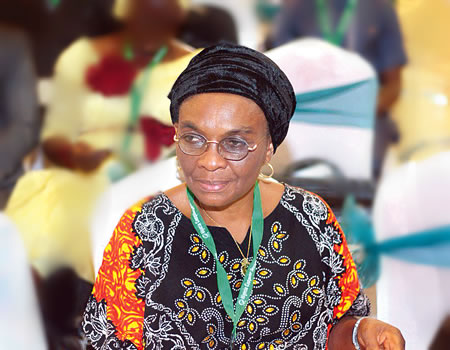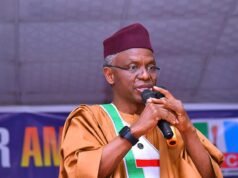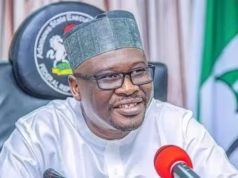On July 6, 2025, Professor Adenike Osofisan—Nigeria’s pioneering female professor of computer science—issued a rallying call for women in academia to support one another with tangible actions rather than mere symbolism. Reflecting on decades of trailblazing in a male-dominated field, she bluntly declared: “Charity begins at home. We women must begin to rally around ourselves—not just celebrating International Women’s Day with speeches and dances—but through real action.”
Table of Contents
From Tradition to Transformation
Osofisan notes that today, discouraging daughters from education is largely a relic of the past. Now, the mantle of responsibility falls squarely on women themselves to foster growth by actively mentoring, sponsoring, and building successors in academia.
She recounts: “I have replaced myself in multiple folds wherever I go,” underscoring a direct commitment to creating spaces for others. This approach, she says, stems from her own ascent—the nurturing of talent that propels more women into prominent roles.

Reigniting Women’s Engagement in STEM
A growing concern for Osofisan is the marked drop in female participation in science, technology, engineering, and mathematics (STEM). With UNESCO statistics indicating Nigerian women are only about 30% represented in STEM fields—compared to 70% for men—she issues an urgent warning: “We need to bring back incentives. Scholarships, research grants, gender‑balanced admissions—they can bridge the gap.”
She evokes memories of Chief Obafemi Awolowo’s incentive policies, advocating for their revival to stem the tide of apathy and exclusion among young women.
Transforming Policy & Leadership
A glaring imbalance persists at the apex of educational leadership in Nigeria. “How many female vice‑chancellors or faculty deans do we have?” Osofisan challenges. She views women’s ascent to top positions not merely as a box to check, but as a vital lever for change. “Representation at the top inspires a whole generation,” she observes.
Still, she warns that tokens do little good. “Bring in quality women—competent, knowledgeable leaders,” she insists. She cites one mentee who rose through the civil service to become a permanent secretary—proof that merit matters.
Dedication Through Advocacy
Osofisan’s career reflects her principles. In her 2006 transformative role as president of the Computer Professionals Registration Council of Nigeria, she became the first woman to hold that post, then ensured others joined her. “When I became president, I made sure I pulled others up with me,” she shares.
Her own milestone of earning Nigeria’s first Ph.D. in computer science in 1989—then becoming Africa’s first female professor in the field in 2006—underscores a lifetime of breaking ceilings and now, helping dismantle barriers for the generations that follow.
A Call to Action for Institutional Reform
Osofisan urges universities and government bodies to implement targeted interventions:
- STEM scholarships, grants and incentives to spark interest and retention among female students.
- Gender-balanced admissions policies to normalise equal representation in STEM cohorts.
- Deliberate leadership pipelines, ensuring qualified women rise to deanships, VC roles, and governing boards.
- Mentorship schemes enable every female academic to guide successors, producing a ripple effect of empowerment.
The Power of Mentorship
“My message to young women,” Osofisan says, “is never to see yourself as inferior. If you have the knowledge and skills, step forward.”
Her emphasis on constructive mentoring instead of hollow gestures underscores a foundational truth: progress is built, not bestowed. Through mentorship and advocacy, women in academia can engineer a future where their presence is both expected and impacting.
Quantifying the Challenge
Despite significant strides, the numbers still lag behind. UNESCO’s STEM discrepancy is stark—30% female versus 70% male. And recent statistics show just 23% of Nigerian women access tertiary education, compared to 40% of men.
These figures aren’t just data points—they represent lost potential, both for individuals and for Nigeria’s broader societal growth.
Optimism Rooted in Commitment
Despite the challenges, Osofisan remains optimistic. She believes that institutional resolve—shaped by policy, practice, and a cultural shift among women themselves—can make female academics the norm, not the exception.
Her closing wisdom: “Education is the foundation of any society. If we want to build a better Nigeria, we must invest in women’s education, support them, and ensure they reach the top.”
Why This Matters
Empowering women in academia isn’t charity—it’s strategic nation-building.
- Diversifying STEM means unlocking innovation, creativity, and talent essential for Nigeria’s competitiveness.
- Inclusive leadership ensures policies reflect broader perspectives, driving fairer decision-making.
- Mentored success replicates itself: each woman aided seeds future leaders across faculties, labs, and classrooms.

Conclusion
Prof. Adenike Osofisan’s message transcends ceremony. It’s a practical methodology built on active mentorship, systemic shifts, and meritocratic leadership. Her life illustrates how transformative concentrated, honest effort can be. If women in academia take her message to heart, the future will see not just one female professor, but a generation where women lead, shape, and inspire.
Action Checklist: What You Can Do Today
| Role | Action |
|---|---|
| Young Female Scholar | Sponsor a female colleague for leadership or conference roles. |
| University Leader | Institute gender-balanced admissions and promotions. |
| Policy-Maker | Fund scholarships and research grants targeting women. |
| Academic Peer | Sponsor a female colleague into leadership or conference roles. |
Join Our Social Media Channels:
WhatsApp: NaijaEyes
Facebook: NaijaEyes
Twitter: NaijaEyes
Instagram: NaijaEyes
TikTok: NaijaEyes
READ THE LATEST EDUCATION NEWS





